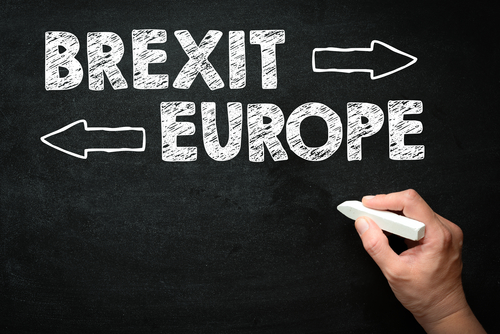Brexit: Unprecedented, Unpredictable, Uncertain
Published: 9/12/2016 2:52:41 PM
“Brexit,” though it might sound like some type of medieval disease, is a brand-new word in the English language. To some it may mean “opportunity,” to others “disaster,” yet its dictionary definition will always be “the British withdrawal from the European Union.”
The European Union (EU) is basically a club with benefits among 28 (soon to be 27) European nations, based on four freedoms:
- The freedom to move goods
- The freedom to provide services
- The freedom of workers to move between the EU countries
- The freedom to move capital amongst those countries
Britain’s* referendum on whether to leave or remain within the EU was held on June 23, 2016—and it passed with 52% of voters in favor of leaving, on a day with 72% turnout.
Although the referendum was approved, the UK isn’t leaving the EU anytime soon; it still has to negotiate the terms of its exit.
Potential Issues of Brexit
Trade
Free trade is one reason countries stay in the EU, in part because it provides access to a common market much larger than the United States (500 million vs. 320 million).
The EU accounts for 52% of trade for the UK. After having removed itself, the UK is now in the same position as Norway, which never joined the EU. Like Norway, in order to have access to the common market, Britain would be required to uphold the EU’s four guiding principles, but—also like Norway—it will have no say in its rule making. This is interesting to note, since the alleged burdens of the very same rules were the driving force behind much of the pro-Brexit sentiment. The likelihood that the EU will allow the UK to strike some sort of a special deal is low, considering that the UK already enjoyed some degree of special treatment before the fissure—often to the chagrin of many other member states.
Despite this, some analysts are predicting a bright economic future for Britain, including closer ties to the so-called, up-and-coming BRIC countries: Brazil, Russia, India and China.
Jobs
British citizens who work in other EU member states will not be able to travel as freely as they can today once Britain is no longer a part of the EU. The fear is that those workers may lose their jobs, or that multinational companies may move themselves out of the UK in favor of lower-cost EU nations.
On the other hand, now that the UK can negotiate independent deals, there is speculation that a British job boom may occur.
Food
There is also speculation that—because of the potential of increased trade and the removal of EU subsidies—the cost of food in Britain will decrease dramatically.
More to Follow?
Depending on what sort of deal the UK and the EU can work out, there is some fear that nationalist movements in other countries may lead them to hold their own referendums on leaving the EU. Then there is the specter of countries within the UK—especially Scotland—voting to leave the United Kingdom in order to remain part of the EU.
The European Union is more accustomed to countries trying to join the club rather than leave. As such, the situation is very unusual and uncertain—in fact, the only thing pundits can agree on is that they can’t agree on any post-Brexit scenarios that are likely to take place. It’s going to be a long, hard road of negotiation between the United Kingdom and the European Union, one that will go on for at least two years.
Nawrocki-Smith is prepared for whatever changes might come.
*British Isles cheat sheet:ss
United Kingdom = Great Britain + Northern Ireland
Great Britain = England + Scotland + Wales
“Britain” is effectively synonymous with “UK” in British political discourse.
Nawrocki Smith LLP
290 Broad Hollow Road, Suite 115E
Melville, New York 11747
Email: info@nsllpcpa.com

